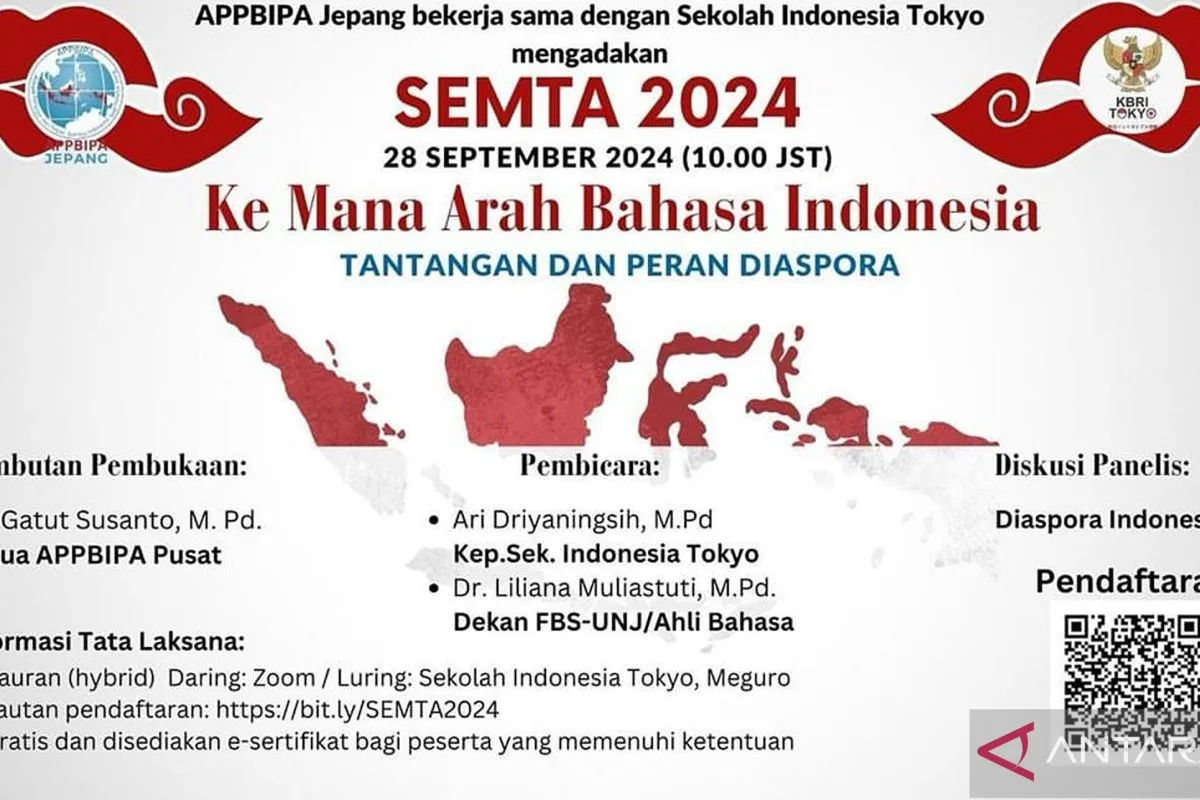VOINews, Tokyo: Linguistics expert Liliana Muliastuti from Universitas Negeri Jakarta has called on the Indonesian diaspora to preserve the Indonesian language by making its use a habit within the family. Speaking at the 2024 Annual Seminar of the Association of Teachers of Indonesian Language for Foreign Speakers (APPBIPA) in Japan, held in Tokyo on Saturday, she emphasized that the family serves as the foundational space for language transmission to children.
“Family is the first home for our children, and it becomes the model for language use. If we start with the family, the foundation will be stronger,” said Liliana, who is also the Dean of the Faculty of Languages and Arts at Universitas Negeri Jakarta.
She explained that fostering the use of the Indonesian language within the family environment would help establish a strong linguistic attitude. This attitude, she noted, is one of the external factors that could aid in the expansion and global recognition of the Indonesian language, in addition to political, security, economic, and cultural factors.
“Our friends in the diaspora around the world also need to create such an atmosphere within their homes,” she added.
Liliana, who previously taught Indonesian language courses in South Korea, encouraged the Indonesian diaspora to implement the Trigatra Bahasa, which outlines three key pillars: prioritize the use of Indonesian, preserve local languages, and master foreign languages.
"This trigatra, in my opinion, is proportionate and very ideal. We shouldn’t allow foreign languages to dominate too much. There needs to be a balance between Indonesian, local languages, and foreign languages,” she explained.
One of the challenges in promoting Indonesian language use is seen in mixed-nationality families, where one spouse may speak a foreign language, making it more difficult to maintain Indonesian as the primary language within the home.
“Even in mixed-nationality marriages, we should continue to use Indonesian at home. Protecting our children by ensuring Indonesian remains their first language is key,” Liliana emphasized.
Additionally, she highlighted the importance of internationalizing the Indonesian language domestically, noting that it is mandated by Law No. 24 of 2009 on the National Flag, Language, Emblem, and Anthem.
Liliana urged native Indonesian speakers to have confidence in using the language during international events, such as seminars, especially when held within Indonesia. “We already have a law that says international seminars held in Indonesia should be conducted in Indonesian, with foreign speakers allowed to use English and interpreters provided as needed,” she pointed out.
During the same seminar, Ari Driyaningsih, Principal of the Indonesian School in Tokyo (SRIT), emphasized that building a strong linguistic attitude must begin with being a good role model. “Rather than speaking a thousand words, it’s better to set an example,” she said.
Asep Wijaya, a teacher of Indonesian at SRIT, echoed this sentiment, stressing that consistency is the key to promoting the global use of the Indonesian language. “Be consistent. When using Indonesian, focus on using it consistently, whether it’s Indonesian, Japanese, or English,” he advised.
Currently, APPBIPA has 28 branches in Indonesia and six branches abroad, including in Japan, Germany, Taiwan, Thailand, South Korea, and Timor Leste. These branches continue to work towards promoting and preserving the Indonesian language globally/ANTARA/VOI




